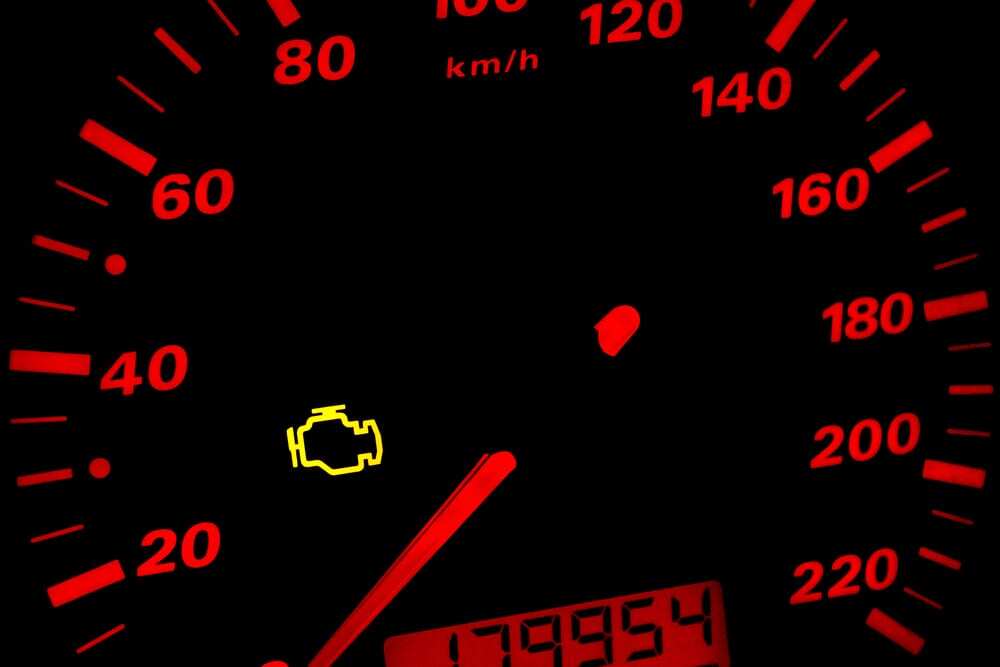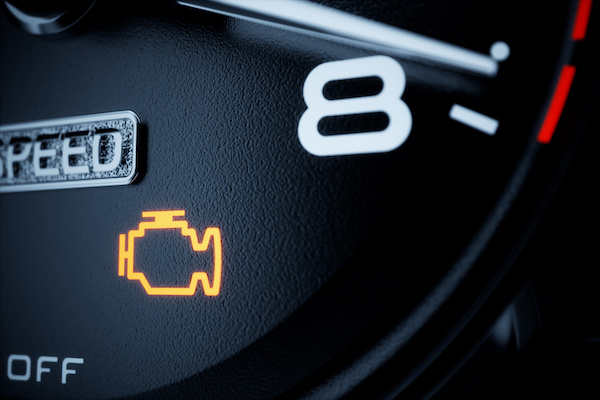As an Amazon Associate, I earn from qualifying purchases at no extra cost to you.
Intermittent Flashing Check Engine Light: Troubleshooting Tips
If your check engine light is flashing intermittently, it indicates a serious engine misfire that requires immediate attention. A flashing check engine light is a sign of a critical engine issue, such as a misfire, which should be addressed promptly.
Ignoring the problem can lead to severe damage to the engine and potentially result in costly repairs. Understanding the possible causes and seeking professional assistance can help diagnose and resolve the issue quickly. We will explore the reasons behind an intermittent flashing check engine light and discuss the importance of taking quick action to ensure the longevity and performance of your vehicle.

Credit: www.colonyoneauto.com
Common Causes Of Intermittent Flashing Check Engine Light
The intermittent flashing check engine light in your car should never be ignored as it indicates a potential problem with your vehicle. Identifying the cause behind this warning light can help you avoid major issues down the road. There are several common causes for the intermittent flashing check engine light, including:
Faulty Spark Plugs
Faulty spark plugs are a common culprit behind an intermittent flashing check engine light. Spark plugs play a crucial role in igniting the fuel-air mixture in the engine’s cylinders. When they start to fail or become worn out, it can cause misfires that trigger the check engine light to flash intermittently. Ignoring faulty spark plugs can lead to decreased engine performance and even damage to the catalytic converter.
Loose Gas Cap
A loose or improperly secured gas cap is another frequent cause of the intermittent flashing check engine light. The gas cap helps maintain the pressure within the fuel system and prevents the evaporation of fuel. When the gas cap is loose, damaged, or missing, it can disrupt this pressure, triggering the check engine light to flash intermittently. Fortunately, this issue is easily resolved by tightening or replacing the gas cap.
Failing Oxygen Sensor
The oxygen sensor in your vehicle monitors the oxygen levels in the exhaust gases, helping ensure optimal fuel efficiency and reduce emissions. However, over time, these sensors can deteriorate, become contaminated, or fail altogether. When the oxygen sensor malfunctions, it can cause an intermittent flashing check engine light. Ignoring a failing oxygen sensor can lead to reduced fuel economy and increased emissions.
It’s important to remember that while these are common causes for the intermittent flashing check engine light, there could be other underlying issues with your vehicle. It’s best to consult a professional mechanic who can diagnose and address the specific problem to ensure the longevity and performance of your vehicle.
Effects Of Ignoring The Flashing Check Engine Light
The flashing check engine light is a warning sign that should never be ignored. Ignoring this warning can lead to severe consequences such as increased emissions, potential engine damage, and reduced fuel efficiency. Here are the effects of ignoring a flashing check engine light:
Increased Emissions
Ignoring a flashing check engine light can lead to an increase in harmful emissions. The engine is not functioning properly, causing unburned fuel to be released into the environment.
Potential Engine Damage
Continuing to drive with a flashing check engine light can result in severe damage to the engine. Ignoring this warning may lead to costly repairs or even the need for a full engine replacement.
Reduced Fuel Efficiency
A flashing check engine light can indicate issues that can affect the fuel efficiency of the vehicle. Ignoring this warning can lead to increased fuel consumption and higher costs at the pump.
Diagnosing Intermittent Flashing Check Engine Light
Diagnosing an intermittent flashing check engine light can be a perplexing issue for many vehicle owners. It signifies a serious problem that needs immediate attention. Proper diagnosis is crucial to avoid further damage and costly repairs. Here are some effective methods for diagnosing an intermittent flashing check engine light.
Using Obd-ii Scanner
An OBD-II scanner is a valuable tool for diagnosing an intermittent flashing check engine light. It can provide valuable insights into the specific issue triggering the light. Connect the scanner to the OBD-II port in your vehicle and scan for trouble codes. The codes will indicate the source of the problem, allowing for targeted and efficient repair.
Inspecting Spark Plugs
Spark plugs are a common culprit for causing an intermittent flashing check engine light. Worn or fouled spark plugs can lead to misfires, which trigger the flashing light. Inspect the spark plugs for signs of wear or damage. Replace them if necessary to eliminate this potential cause of the issue.
Checking For Vacuum Leaks
Vacuum leaks can also be responsible for the intermittent flashing check engine light. These leaks disrupt the air-to-fuel ratio, leading to misfires and emission-related issues. Perform a thorough inspection of the vacuum lines and hoses for any signs of wear or damage. Rectifying vacuum leaks can often resolve the flashing check engine light.

Credit: www.westsidecarcareyakima.com
Addressing Common Diy Fixes
Even intermittent flashing check engine light issues can often be resolved with simple DIY fixes. Here are some common steps you can take to address these problems:
Tightening Gas Cap
Inadequately sealed gas caps are a frequent trigger for check engine lights. Simply tightening the gas cap securely can often resolve the issue.
Replacing Spark Plugs
Worn-out or faulty spark plugs can cause the check engine light to flash intermittently. Replacing the spark plugs can restore proper engine function.
Cleaning Mass Airflow Sensor
The mass airflow sensor can get dirty over time, affecting engine performance. Perform regular cleaning to ensure optimal functioning and prevent check engine light issues.
Importance Of Timely Professional Inspection
When it comes to your vehicle’s well-being, timely professional inspection of an intermittent flashing check engine light is crucial. Failing to address this issue promptly can lead to severe consequences such as costly repairs, reduced engine longevity, and compromised safety.
Avoiding Costly Repairs
Ignoring intermittent flashing check engine lights can result in larger and more expensive problems down the line. A professional inspection helps catch issues early, saving you from hefty repair bills.
Preserving Engine Longevity
Regular inspections ensure your engine stays in optimal condition for longer. Addressing check engine light promptly prevents small issues from escalating and damaging vital engine components over time.
Ensuring Safety
Timely inspection of a flashing check engine light.. is essential for your safety on the road. Resolving underlying issues promptly guarantees a reliable and properly functioning vehicle that reduces the risk of accidents due to potential mechanical failures.
Understanding Flashing Vs. Constant Check Engine Light
When the check engine light flashes intermittently, it signifies a severe issue needing immediate attention. Unlike a constant light, a flashing light indicates a critical problem demanding prompt vehicle inspection and repair to prevent further damage. Bear in mind that driving with a flashing light could lead to further complications.
Understanding Flashing vs. Constant Check Engine LightThe check engine light (CEL) is designed to alert drivers to potential issues in the vehicle’s engine. This indicator can illuminate constantly, indicating a persistent problem, or it can intermittently flash, signifying a more severe issue that requires immediate attention. Understanding the difference between these two types of CEL warnings is crucial for maintaining vehicle performance and safety.Meaning of Flashing CEL A flashing check engine light typically indicates a severe and potentially damaging issue with the engine. This warning suggests that the engine is misfiring, which can lead to catalyst damage, ultimately resulting in costly repairs if not addressed promptly. When you see the CEL flashing, it’s imperative to pull over and have the vehicle towed to a qualified mechanic for diagnostics.Difference in Severity The severity of a flashing check engine light compared to a constant one lies in the potential damage it can cause to the vehicle. While a constant CEL signals an issue that should be addressed, a flashing CEL indicates an urgent problem that requires immediate intervention. Ignoring a flashing check engine light can lead to further damage and increase the risk of a breakdown on the road.Significance of Immediate Action When the check engine light is flashing, immediate action is vital. Promptly addressing the issue can prevent further damage to the engine and save on costly repairs. If the CEL is flashing, it’s best to avoid driving the vehicle and seek professional assistance right away. Ignoring this warning can lead to a delay in addressing the underlying problem, potentially compromising the vehicle’s safety and performance.By understanding the implications of a flashing check engine light compared to a constant one, drivers can prioritize the necessary actions to maintain their vehicle’s health and performance. Ignoring a flashing CEL can result in more extensive damage and increased repair costs, making it essential to address this warning promptly.Factors Contributing To Intermittent Flashing Cel
Factors contributing to intermittent flashing CEL include faulty oxygen sensors, loose gas caps, or issues with the catalytic converter. Proper maintenance and timely diagnostics help prevent potential engine problems and ensure optimal vehicle performance. Addressing these issues promptly can prevent further damage and costly repairs.
Factors Contributing to Intermittent Flashing CELThe check engine light (CEL) serves as a vital indicator of any issues within a vehicle’s engine system. While a constantly lit CEL requires immediate attention, an intermittent flashing CEL can be equally concerning. It could indicate a severe problem that requires immediate action. Understanding the factors contributing to intermittent flashing CEL incidents can help car owners make better decisions when it comes to maintenance and repairs.Driving Habits
The way we drive our vehicles can have a significant impact on the occurrence of intermittent flashing CEL. Aggressive driving, such as sudden acceleration or hard braking, can put excessive strain on the engine and its components. This strain can trigger fault codes that result in a flashing CEL. Additionally, consistently starting and stopping a vehicle in heavy traffic can further contribute to intermittent flashing CEL incidents. Adopting a smoother driving style and avoiding sudden movements can help reduce the occurrence of these incidents.Environmental Conditions
Environmental conditions can play a role in intermittent flashing CEL events. Extreme temperatures, such as extremely hot or cold weather, can put stress on the engine and its components. Cold weather can result in reduced oil flow and increased friction, while excessive heat can cause overheating and potential damage. Additionally, driving in dusty or sandy areas can introduce contamination into the engine, leading to potential issues. Being mindful of the environment in which we drive and taking precautions, such as regular oil changes and air filter replacements, can help minimize the impact of environmental conditions on the CEL.Age Of Vehicle
The age of a vehicle can also be a contributing factor to intermittent flashing CEL occurrences. As cars age, their components and systems may begin to deteriorate, leading to potential malfunctions and fault codes. Issues such as worn-out spark plugs, aging sensors, or a failing catalytic converter can trigger intermittent flashing CEL incidents. Regular maintenance and inspections become crucial as a vehicle ages, ensuring that potential problems are identified and resolved before they progress into more significant issues.In conclusion, several factors can contribute to intermittent flashing CEL incidents. By being aware of our driving habits, considering the environmental conditions, and recognizing the age of our vehicles, we can take proactive measures to minimize the risks associated with these occurrences. Regular maintenance and timely repairs are essential to ensure the overall health and well-being of our vehicles.
Credit: www.reddit.com
Seeking Professional Help: When To Consult A Mechanic
If you find yourself dealing with an intermittent flashing check engine light, it’s important to assess the situation and determine whether you can resolve it on your own or if it’s time to seek assistance from a professional mechanic. While some issues can be tackled with simple DIY fixes, there are instances where the expertise of a trained mechanic is needed. In this article, we will discuss the telltale signs that indicate it’s time to schedule a visit to the mechanic.
Persistent Flashing Cel
If your check engine light continues to flash consistently, without any signs of stopping or diminishing, then it’s definitely a cause for concern. The flashing CEL indicates a more serious problem and should not be ignored. While you might be tempted to brush it off as a minor issue, it is crucial to remember that the check engine light is designed to provide an early warning system for potential problems with your vehicle. Ignoring a persistent flashing CEL can lead to further damage to your engine and additional costly repairs. Therefore, it is highly recommended to consult a mechanic immediately to diagnose and address the underlying issue.
Unresolved Diy Fixes
If you have attempted to fix the issue yourself but the check engine light continues to flash intermittently, it is a clear indication that your DIY efforts were not successful. While it’s commendable to try and troubleshoot the problem independently, there are certain issues that require specialized knowledge and tools to be resolved effectively. If you have exhausted all your options and the problem persists, it's time to recognize the limits of your own capabilities and bring your vehicle to a professional mechanic. They have the expertise and experience to diagnose the issue accurately and provide the appropriate solution.
Unusual Engine Noises
In addition to a flashing CEL, unusual engine noises can also indicate a more serious underlying problem. If you start hearing strange sounds, such as knocking, clicking, or grinding, while the check engine light is flashing intermittently, it’s crucial to seek professional help. These unusual noises often indicate mechanical issues that can have detrimental effects on your vehicle’s performance and longevity. A trained mechanic can listen to and diagnose these noises, offering a proper evaluation and recommendation for repairs or replacements.
Remember, your safety and the longevity of your vehicle should be prioritized. Seeking professional help from a mechanic when dealing with an intermittent flashing check engine light is crucial for identifying and resolving any potential issues before they worsen. Don’t ignore the warning signs your vehicle is giving you. Consult a reliable mechanic to ensure your peace of mind and the optimal functioning of your vehicle.
Conclusion
Addressing an intermittent flashing check engine light is vital for vehicle safety and performance. Regular maintenance and diagnostics can prevent costly repairs in the future. Being proactive and seeking professional help at the first sign of trouble can save time and money.
Stay informed, stay safe, and keep your vehicle running smoothly.





